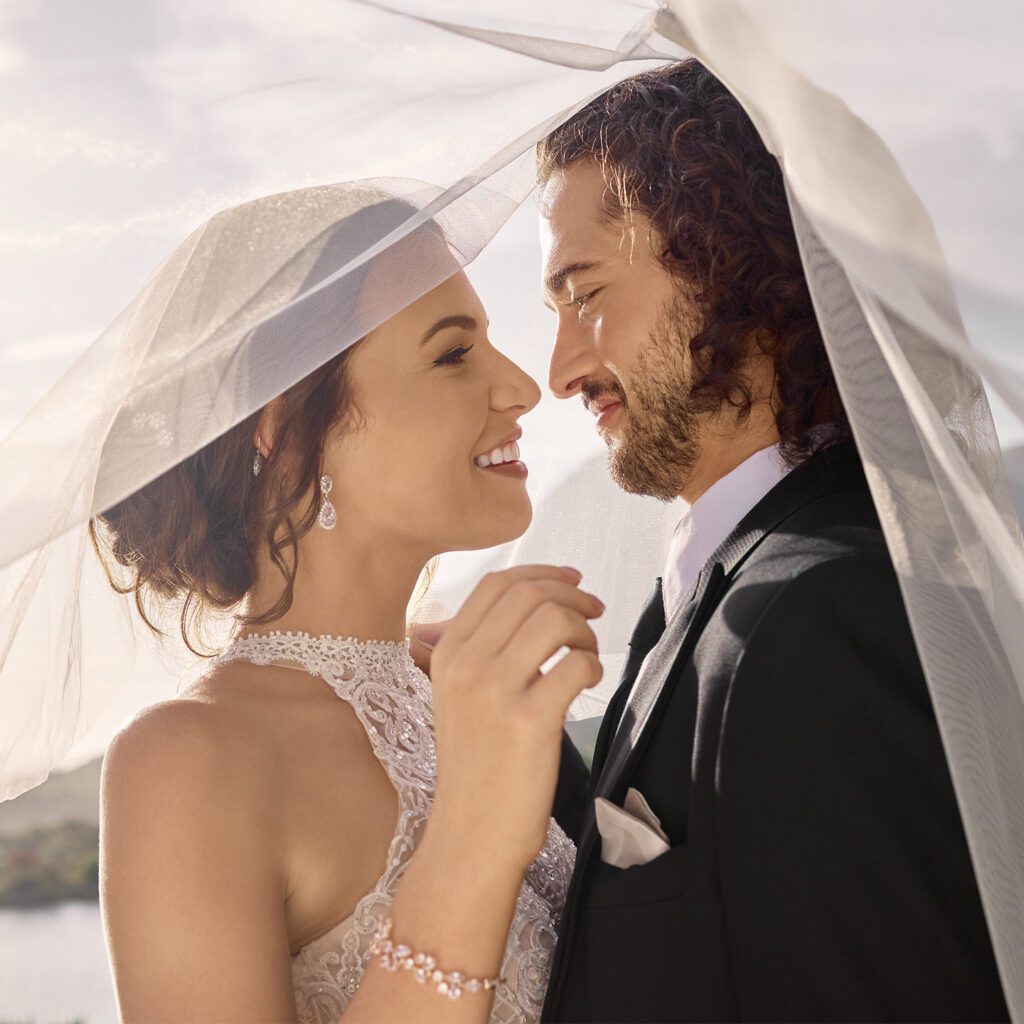What to Know Before You Walk Down the Aisle
When I was recently teaching a college class about healthy relationships, several of my young students shared happily that they were engaged to be married.
But when I asked them what they thought their chances were of their marriage surviving, the looks on their faces turned from excitement to anxiety. “50/50,” they said in unison, pointing to what they had heard from friends, family and the media.
While there may be some truth to the idea of a first marriage having a 50/50 chance of survival, many people don’t realize that this may be the outcome of doing absolutely nothing to prepare for a great marriage or doing things the experts tell you not to do before you marry. In fact, one 2003 study showed that premarital preparation can reduce the likelihood of divorce by 30 percent.

What is Premarital Preparation?
Premarital preparation is an overarching term for a variety of preparation options for engaged couples, but it most often refers to premarital counseling or education about marriage through courses and seminars. Many marriage experts believe that a combination of premarital counseling and education is the best preparation for marriage.
Premarital counseling is usually given by ministers or mental health professionals, and it is typically not skill based. Counseling sessions normally deal with specific relationship issues such as family impact, compatibility, children, role expectations, sexuality, religious beliefs and personal adjustment. Some churches require a certain number of sessions before they will allow people to marry in their church.
Premarital education classes and/ or seminars are typically skill-building, how-to classes. They usually teach different aspects of effective communication, conflict resolution and problem solving, and courses may cover topics like intimacy, dealing with in-laws, finances, relationship expectations and qualities that lead to a satisfying marriage relationship.
Marriage license discounts are offered by many states to couples who have participated in premarital preparation. In Tennessee, couples that participate in a minimum of four hours of premarital preparation receive a $60 discount on their marriage license.
The Case for Premarital Preparation
More than a decade of research indicates that couples who learn effective communication skills, conflict management skills, decision-making skills and problem-solving skills (which is not the same as conflict management) have a greater chance of their marriage making it in the long haul.
“Premarital education has four overarching benefits for couples,” says Dr. Scott Stanley, research professor and co-director of the Center for Marital and Family Studies at the University of Denver. “It gives them time for discussion as well as time to process the fact that marriage is a very important matter. It helps couples gain access to marital resources and support, and for many, it lowers the risk of subsequent marital distress and/or termination of the relationship.”


Slowing Down
One of the most important pieces of advice I would give to a couple preparing for marriage is to take it slow, even though that feels so contrary to what people want to do when they are head over heels in love. The slowing down process helps couples look at their relationship without rose-colored glasses, increasing their time for reflection and reducing their likelihood of making impulsive decisions. It also allows them to clarify their expectations with each other and to digest the magnitude of the decision to marry.
When couples have time to process the fact that marriage is important and others in the community want their marriage to be successful, the decision to marry tends to take on a greater significance. They begin to realize that marriage is an investment that is affected by both short-term and long-term views.
A Short Window of Opportunity
Research conducted by Life Innovations founder and CEO Dr. David H. Olson shows that a window of opportunity exists in the year preceding a wedding through the first six months after the wedding— this is the period when couples can benefit the most from marital education and counseling. As more time passes and more stress comes into a relationship, couples often find that negative habits and unhealthy relationship patterns become well-established and hard to break.
One benefit of premarital preparation rarely discussed is the opportunity for people to come to the realization that they are rushing into a relationship that needs more time or that they shouldn’t be marrying at all. Even though a broken engagement is very painful and seems like a negative thing, it is far better than a divorce later on down the road. I have heard too many people say, “I knew I was marrying the wrong person as I walked down the aisle, but when I came to this realization, the invitations had gone out and showers were planned. We were too far into the process for me to put the brakes on and back out.”
What You Don’t Know Can Hurt Your Relationship
Prominent teacher, writer and marriage counselor Dr. David R. Mace once said, “Marriage is the deepest and potentially the most gratifying of all human relationships, but it is also one of the most demanding. Unfortunately, couples seldom have more preparation than a little advice from their parents and a new set of china.”
I have worked with couples preparing for marriage and those who have been married for more than 20 years. I would be a wealthy woman if I had a dime for every time one of those couples said, “We just didn’t know,” or “Why didn’t somebody say something?”
There are many reasons why people say these things. Perhaps other people were giving them information and they couldn’t hear it because they were so madly in love. Or maybe they rushed into a marriage relationship so quickly that no one (themselves included) had the chance to see warning signs that the relationship was headed for disaster.
Research shows that couples will face their most serious challenges during the first five years of marriage. Listed below are the top ten potential problem areas identified in a study by the Creighton University in 2000:
- finances
- debt brought into marriage
- balancing work and family
- frequency of sex
- household expectations
- constant bickering
- communication
- in-laws
- husband's job
You “Don’t Know What You Don’t Know”
Most who participate in premarital preparation find it to be fun and informative. They often learn things about each other that they never knew before. The reality is that couples don’t know what they don’t know. They may think they are going into marriage with a good set of skills, but if they have nothing to gauge them by, it is hard for them to know if those skills are actually constructive. Some of the things people learn about relationships growing up may not be useful when building a marriage relationship. In fact, many things people think will be helpful in their marriage relationship are damaging in reality.
Think of premarital preparation as the playbook or the manual for your marriage. Most men would never think of playing a football game without knowing the playbook, or think of driving their car for 60,000 miles without taking it in for a tune-up. Yet when it comes to marriage, many are willing to blindly jump in with both feet.
I know one guy who showed up with his fiancé to take a premarital class. He clearly did not want to be there or think he needed to be there. At the end of class when attendees were asked why they came, he said facetiously, “My fiancé at gunpoint.” But then he went on to share how much he realized he didn’t know and proceeded to list all that he had learned.


Nurturing Your Relationship
The United States is the most marrying, divorcing and re-marrying country in the world. We desperately want relationships, and we want them to work. Many people operate from the mindset that a marriage will work naturally if you are really meant to be together. But if you ask any couple that has been married for a few years, they will tell you that isn’t exactly the way it works. Learning how to do the marriage dance without stepping on each other’s toes takes time and a great deal of patience.
Consider this analogy: You buy a car off the lot. Over the years, you never change the oil or service it. You get some dents in the sides, and the fender is falling off so you duct tape it back on. You drive it off the road sometimes, and it has started to rust out in some places because you never wash it.
You can still get around in that car. But it won’t get you anywhere fast, and you will always be on high alert that it could quit on you at any moment. Could you have prevented these problems? Yes, by taking the time and energy to keep up your car. But you chose not to, and instead of driving that car for 100,000 miles or more, it is ready for the junkyard with only 50,000 miles on it.
It is the same with marriage. Which would you prefer: A marriage that is barely rocking along, held together with duct tape in which both people suffer? Or a relationship that is nurtured and cared for and includes adventure, romance, give-and-take and a sense of accomplishment from making it through tough times?
Whether you are planning for your first marriage or entering into a second marriage, take time to get directions for loving and caring for your spouse. It may save you from a lot of unnecessary pot holes, wrong turns and deadends. Assuming the GPS will take you the most direct and easy route has proved more than one person wrong.
There are no shortcuts to building a great long-term relationship. But I can honestly say that I have never had someone tell me that they were sorry for putting forth effort ahead of time to learn how to have a great marriage. Consider premarital preparation—it will put you on the right track.


Julie Baumgardner is the executive director of First Things First, a research and advocacy organization dedicated to strengthening families through education, collaboration and mobilization.

